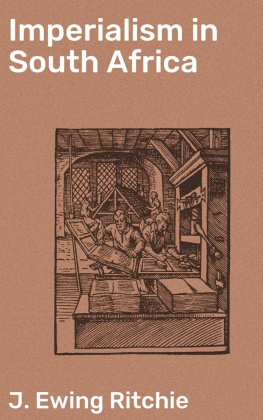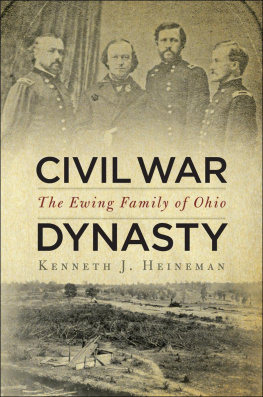THE
NEW SUNDAY LIQUOR LAW VINDICATED.
An Act came into operation in August, denominated The New Beer Bill, requiring public-houses to be closed on Sundays, with the exception of the hours 1 to 3 p.m., and 6 to 10 p.m. No sooner was it passed than it was found there was a great decrease in the number of cases of persons charged with drunkenness at the various police stations of the metropolis. Monday, instead of being a heavy day, was the reversethe magistrates had little or nothing to do. But this great public good was not brought about without inconveniencing some parties. The publicans felt their craft was in danger,that they were, as Benjamin Disraeli informed them the other day at Plymouth, in a critical situation; and that if they acquiesced in the law, the result would be most unsatisfactory, pecuniarily, to themselves. Accordingly, they have banded themselves into one compact Defence Associationthey have taken sweet counsel togetherthey have organised an opposition all over the land. Whether they have acted wisely is another matter: with the evidence just published in two enormous Blue Books, I think silence would become them better. And so thought the knowing ones in the trade when they accepted the new Bill instead of one that would have been harsher still. The opponents of the Billpublicans by-the-byethus speak of it: Mr. Luce of Hampton Court, thinks it a despotic and tyrannical Bill. According to a Mr. Symes, it is directed against all recreation on Sundaysall relaxation after the toils of the week. Mr. Palmer said, The Bill ought to be called the Liberty of the Subject and Licensed Victuallers Liberty Curtailment Bill. I take these extracts from the report of a great meeting in Drury Lane in September. Mr. Lyne, also a publican, writes in the Daily News, that since the curfew bell there never was a measure which produced such general discontent. Notwithstanding the genialness of the weather the social gloom which has settled in the suburbs is indescribable. The Daily News, in the poor hope of saving itself from annihilation, by opposing the new Bill, and thus becoming the organ of the pot-house says:The Pharisees of our drawing-rooms and saloons ought, before they are allowed to hamper and annoy the honest poor by their enactments, to be compelled to share for a season in the labour of the poor, in order that they might have some conception of the privations which they entail upon their victims, and the possible consequences of such privation. In another leader it draws the picture of a working man returning from Brighton and starving in the streets in consequence of the new Bill. Such is an outline of the new Bill, as described by the publicans and their champion, the Daily News. Never was there a greater outcry and so little wool. One would fancy from the above remarks that an injustice was being donesuch as the world had never witnessed before. You would have thought that at least we had been robbed of habeas corpus, or that still more valued right the Englishmans right to grumble. You would have expected every print to be filled with tales of terroryou would expect every man you met to have had a face of woe, and especially that the working classes, who have been robbed of their rights in so atrocious a manner, would have talked of armed resistance, or at least have provided themselves with pikes. The working men have not held a single meeting on the matternot one single groan has been wrung from them by the unheard of oppression under which they now labour. So callous and indifferent are theyso utterly callous and indifferent are all other classes of societythat the publicans have been compelled to come forward and so do battle for the working man. What disinterested public spirit! English liberty, torn, bruised, bleeding, shunned by all who once worshipped her and whom she once blessed, finds refuge in a public-house! If you want her you must go to the Kings Arms, or the Red Lion, and call for a pint of beer.
But I have over-stated my case: there have been some complaints from parties not publicans after all. On looking through a file of the Daily News for the last three months I find three such. No. 1, is there placed in the largest type, and headed, Starvation by Act of Parliament! You are alarmed. Read on, your fears will soon cease. The writer says:Sir, I am a bachelor living in chambers, the resources of my mnage do not extend to cooking a dinner, and, like most persons in my situation, I generally dine at a tavern in the neighbourhood. On Sunday, I attended the afternoon service at Saint Pauls Cathedral, and upon my return at five oclock (what a circumstantial dog he is!) I repaired with my appetite in excellent condition to my usual dining-place in Fleet-street. I was rather taken aback at finding a closed door frowning upon me; but I rang the bell, and, after a brief delay, a small part of the door was cautiously opened, and there appeared in the apeture the head of a disconsolate looking waiter, who told me that the establishment was closed in compliance with the provision of the New Beer Bill, and that consequently I could not have any dinner. The next deep pang of anguish bursts from the bleeding bosom of a Templar, who says:I am a victim of this Act, being scarcely able to get any dinner before the Sunday evening service. Another, a father of a family, says he dines at five, and he finds the beer flat. That I imagine is his own fault. Surely it was not the Act of Parliament did that. We shall next be told when the beer turns sour that was also the Act of Parliament. But perhaps I am wrong. A well-known judge declared Parliament could do every thing but make a woman a man or a man a woman. So, after all, the father of a family may be right, and the New Beer Bill may be the reason why his arf-and-arf is flat.
Now, I ask, is it not ridiculous, on the face of it, that an Act of Parliament should be set aside, because a bachelor finds, once upon a time, the door of his favourite hotel shut in his face; or because a Templar says he cant dine till near the time for evening service,though, for the life of me, I cant see why he cannot; or because the father of a family finds his beer is flat: yet this is all the complaint I find, even in the Daily News. We are told the working men are robbed of their rights. I dont find the working men complain,why should they? They know better than that. The law, as it stands, allows the working man to get all the beer he wants; and if you turn to the evidence lately given before a Committee of the House of Commons, you will find that the working classes are in favour of the change, and that many of them, even the most drunken and dissipated, feel that it would be a good thing if the public-houses could be closed altogether on Sundays. Many of the most respectable publicans in the metropolis gave similar evidence before the same Committee. All the moral and decent people in the country are of a similar opinion. The Provost of Edinburgh shows that when Forbes Mackenzies Act came into operation in Edinburgh drunkenness and crime decreased; that when the magistrates allowed it to fall into abeyance, drunkenness and crime increased. Evidence was read before the Committee, by the Rev. Mr. Baylee, to show that some years since a great reformation had been effected by the partial closing of public-houses, and Mr. Balfour showed how the metropolis had improved in this respect within the last few years. The question is, Is this improvement to be continued? No one expects to make men moral by Act of Parliament; no one expects the policeman to take the parsons place; but when we see a great good done,when we see a fruitful source of crime and poverty and disease arrested, are we to pause because a Templar cannot dine till evening service, or because the father of a family complains that his beer is flat? I forgot the publicans: are they to stop the way? I trust not. It is nonsense to say the working-man is deprived of his beer; he is not. All the beer a man needs he can buy now. The public-houses are allowed to be open sufficiently for that purpose. It is clear what the publicans are fighting for; the welfare of the working-man is a mere pretence,the rights of Englishmen is a mere pretence,they want to sell more beer,to sell the beer that shall intoxicate; all that the new Bill seeks to do is to prevent a man sitting all Sunday night in a public-house, spending his last shilling there, and thus robbing his wife and family of that which should feed and clothe and maintain them during the week. The publicans themselves confess the Sunday trade is an abominable one. More than one publican, examined before the Committee, confessed this to be the case. The evidence of Mr. Wayland, the Marylebone City missionary, and others, all went to show that it is the Sunday drinking that does so much harm, and that was the effect of the late hours at which public-houses were allowed to be kept open.






